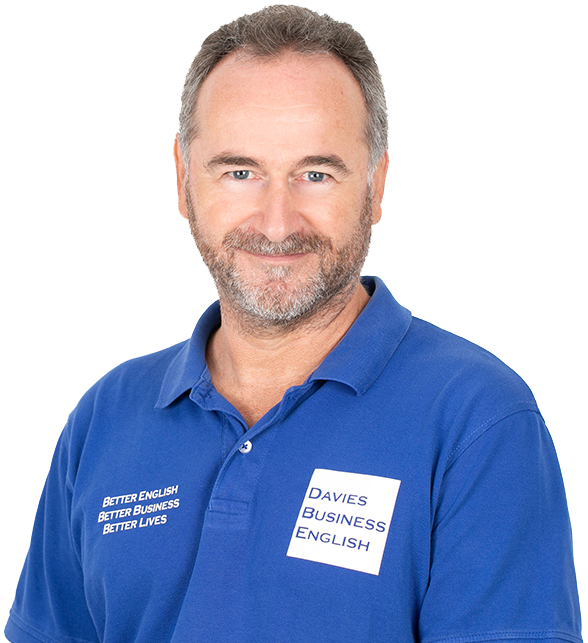Many people would like to improve their abilities to communicate in a second language. They recognise that it could make a considerable difference in various aspects of their lives, including career success, personal development and even how much they enjoy their holidays abroad. It seems however that most people struggle to even get started. They don't really know what to do in order to get beyond the very basics that they learned in school or in classes later in life.
The majority of these classes tend to be generic, following the same patterns of talking about yourself and your family, ordering basic food and drinks in a restaurant, booking a hotel room or going out in the evening, perhaps to a cinema or theatre.
This may be sufficient for the average holidaymaker but when we need to communicate in another language for our jobs we suddenly find that most of this - especially the vocabulary - is almost useless. At this point the frustration really grows because returning to classes just gives us more of the same, but what else can we do?
The answer is ‘quite a lot’. Here are my top recommendations for anyone who wants to develop their language skills, particularly in relation to their jobs and careers.
1. Go forwards, not backwards.
The first question you might want to ask yourself is ‘Do you want to follow a course?’ Maybe you would like to try something different. Think back to your previous experiences in school and other courses. Think about how much you enjoyed that kind of learning environment and how effective it was. Personally, I really enjoyed language classes in school. I had great teachers and I enjoyed the stories about life in other countries.
Of course not everyone has been so lucky. Some of my clients don't even remember their school English teachers. As soon as they left school they stopped learning and forgot much of the English that they learned in class. Perhaps, even then, these young students found it difficult to relate their classes to their lives - a story that we hear all too often. So if this system hasn't worked for you as a young student do you think that it will work for you as an adult? If you think you are ready for something different, then read on.
2. Take responsibility for your own learning.
As children and young students we need our teachers to tell us what to learn. The whole education system is there to guide us with our studies. It isn't until we reach university that we have much choice in what we learn. Learning a second language as an adult has much more in common with university studies than it does with the school education system. In university the professors do not read the books to you, they simply give you a list of books to read and it is your responsibility to study. You have to form your own opinions, often arguing your case in the written essays and presentations.
Now, to develop your skills with a second language, it may be useful to have someone to guide you with which books, magazines, websites etc. to read and study, what to listen to and what to focus on, but the responsibility for studying and learning is better in the hands of the learner than with a teacher. You can decide what is the most important for you to learn for your job. You know your job better than any teacher. You may need some support and guidance to confirm that you are doing okay but the results that you get from using the language will be just as important.
When you speak or write and other people show that they understand you then your confidence will grow.
3. Make a plan.
When I work with people on their Business English the first thing we do is make a plan. This is a key step in helping you to take responsibility for your learning. Remember that a plan should be used as a working document within a process of ‘plan - execute - review - re-plan’ etc. If the plan doesn't work then it will need changing and this may be necessary several times as situations change and new things need to be learned. A plan should never be something that is written and then left on the shelf to be forgotten and gather dust. Your plan should identify a series of goals, the amount of time you have to achieve them and the processes and resources you will use along the way. It will be useful to take some time to analyse your normal week, from the time you get up in the morning to the time you go to bed each day. Here you will identify where there may be a free hour or two for studying but also try and find some spare minutes which can be reserved for performing small tasks which will help you to learn. These will be times when you are not focusing on anything else in particular, for example, perhaps whilst brushing your teeth, having breakfast, drinking a coffee, walking to the station, sitting on the bus or train or aeroplane. Now you might find anything from a few minutes to a few hours. Of course not every week is always the same for everyone and so it is also useful to look ahead in the diary when making plans.
4. Think of it as a project.
Learning is a very personal thing which involves many different feelings and emotions, both positive and negative. These range from the pride we feel due to our successes, through nervousness and anxiety related to some form of test or exam, which can result in feelings of shame and embarrassment if we do not do as well as we hoped. Consequently, it is a good idea to try and depersonalise the process. Treating this as a project rather than as something personal can help you to set goals and work towards successfully achieving them in a systematic way. Projects are broken down into phases with the various tasks programmed in order to achieve certain objectives. Remember that your plan is there to help monitor and organise, just as in any other project that you may be working on.
5. Focus - even if only for five minutes.
I recently read that the term ‘multitasking’ was originally used to describe the way computers rapidly switch from one task to another and back again in order to process information in useful ways. Our brains don't work quite like computers in this way and are not very good at switching backwards and forwards from one task to another. We need time to restart the thinking process and trying to do two things at the same time doesn't work well. Focusing on the task at hand even if only for a short time is the most effective way to learn anything. Of course there are some routine activities that don't require us to focus, such as brushing our teeth in the morning, eating breakfast etc. These activities can also be used as trigger events where we might be able to ‘steal’ five minutes or more in order to quickly revise some vocabulary for example. Daily repetition in this way can be habit-forming and very useful for working with memorisation techniques. Finding a whole hour free during a busy day might be impossible for many people but finding 30 minutes, 20 minutes or 10 minutes a few times a day might be perfectly possible and very useful for language learning.
6. Think about it often.
If you want to improve your language skills for your work it will be useful to repeatedly ask yourself ‘How do you say that?’ in whichever language you're learning. Have a notebook open at your side throughout the day for quickly writing down words and phrases which you can look up and translate later when you have more time. If you don't do this you may not remember what it was you wanted to say and so you may forget to look things up completely. The things that you want to say today will probably also be needed again tomorrow and the next day. Working this into your daily routine as a new habit which supports your learning process will help you to quickly learn some words and phrases that you will use often. It will also help you to quickly develop confidence too.
Using this kind of system will enable you to learn the language skills that you need much more quickly than any standardised course. For example, a typical course during a school year with a total of 100 hours in a language school will normally use a standard textbook which will probably never cover the topics you need at work. Group size may be quite large and so personal contact time with the teacher will be limited to a few minutes per person. Even reducing the group size and therefore increasing personal contact time with the teacher will not give the best results if you only work with a standard textbook. The fastest way to learn a language is to take control yourself and decide what you want to learn. Remember that you are not only learning information but you are developing and training new skills to use at work. Skills that you will want to use tomorrow, not next year.












